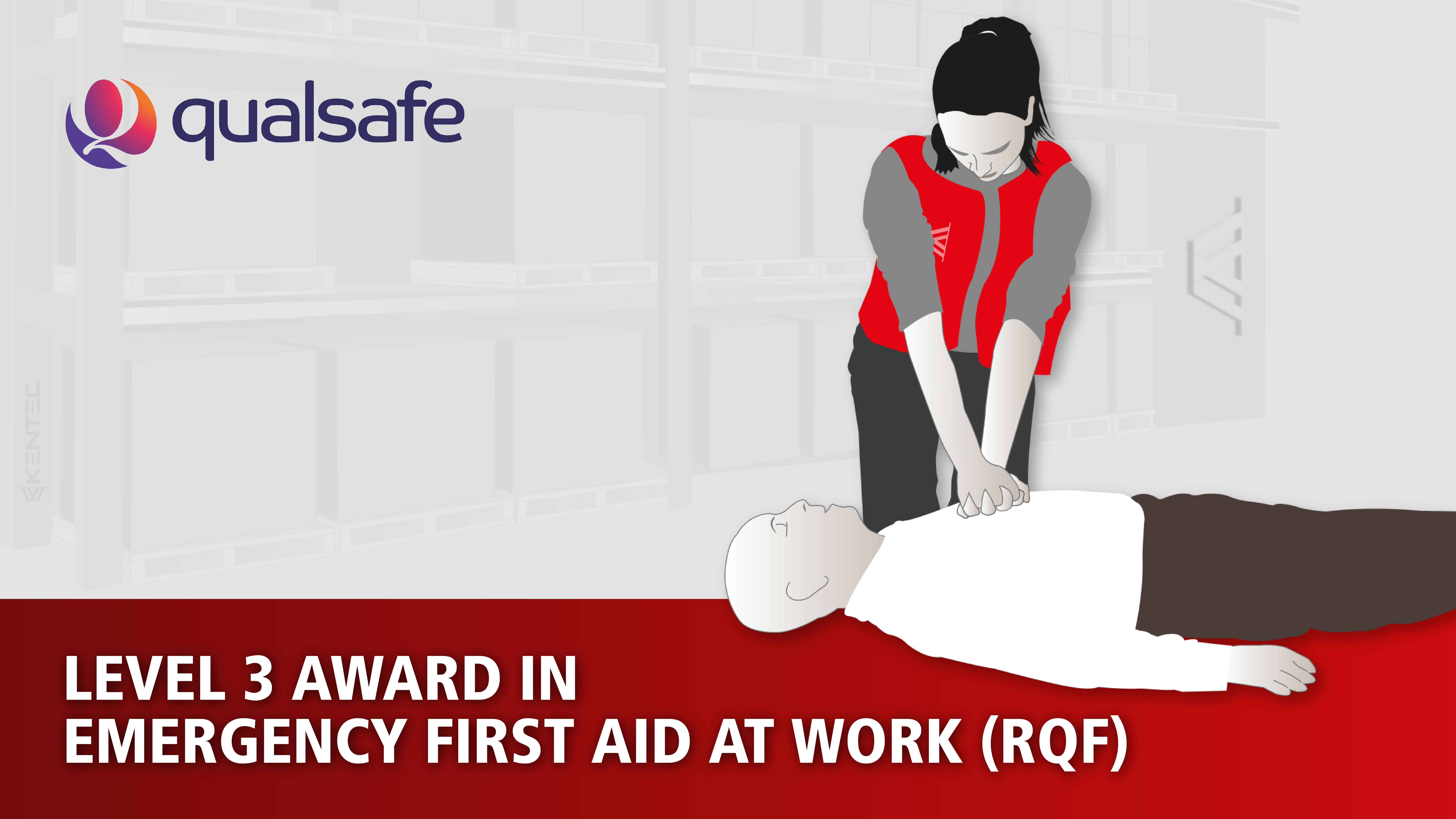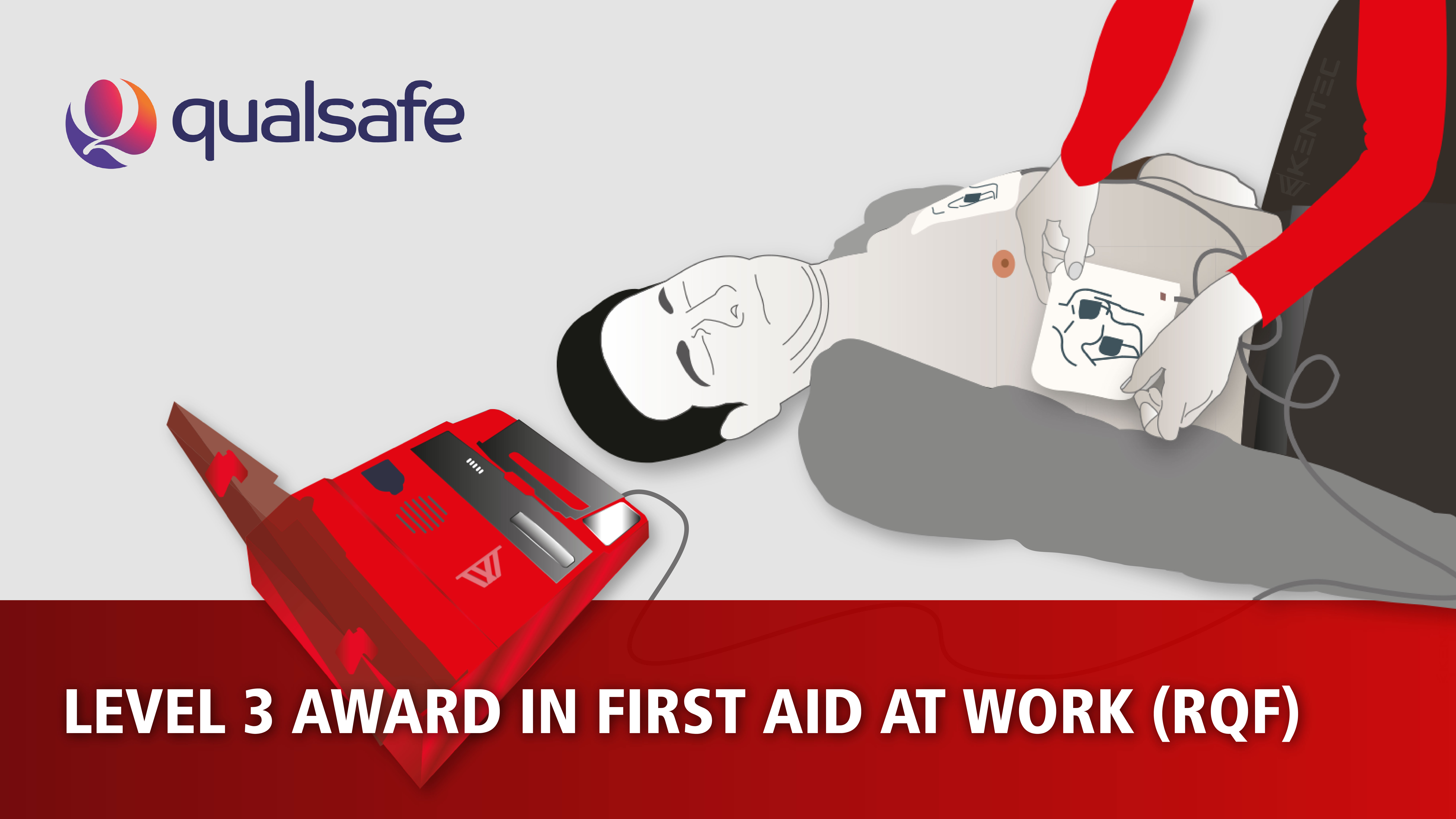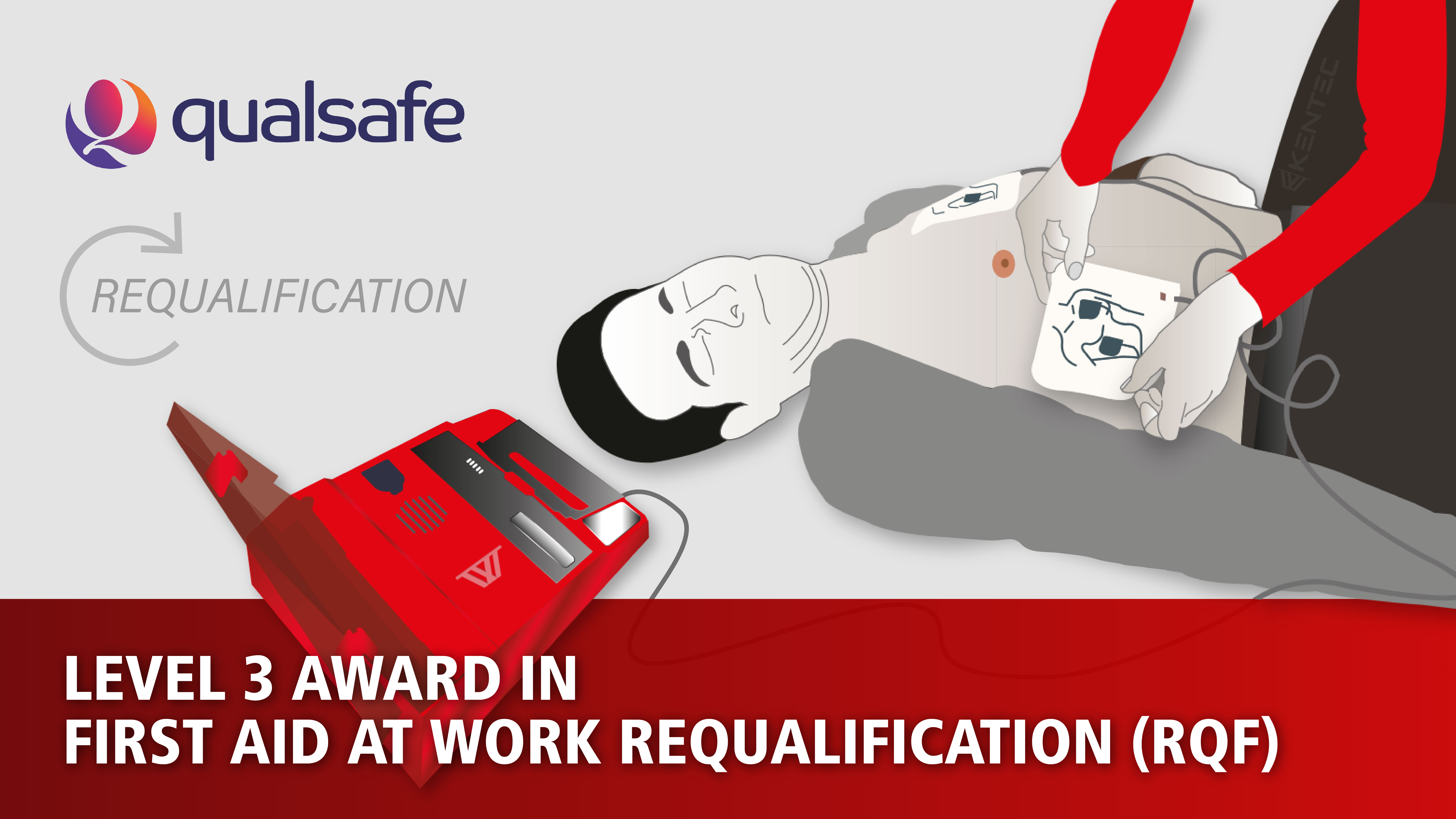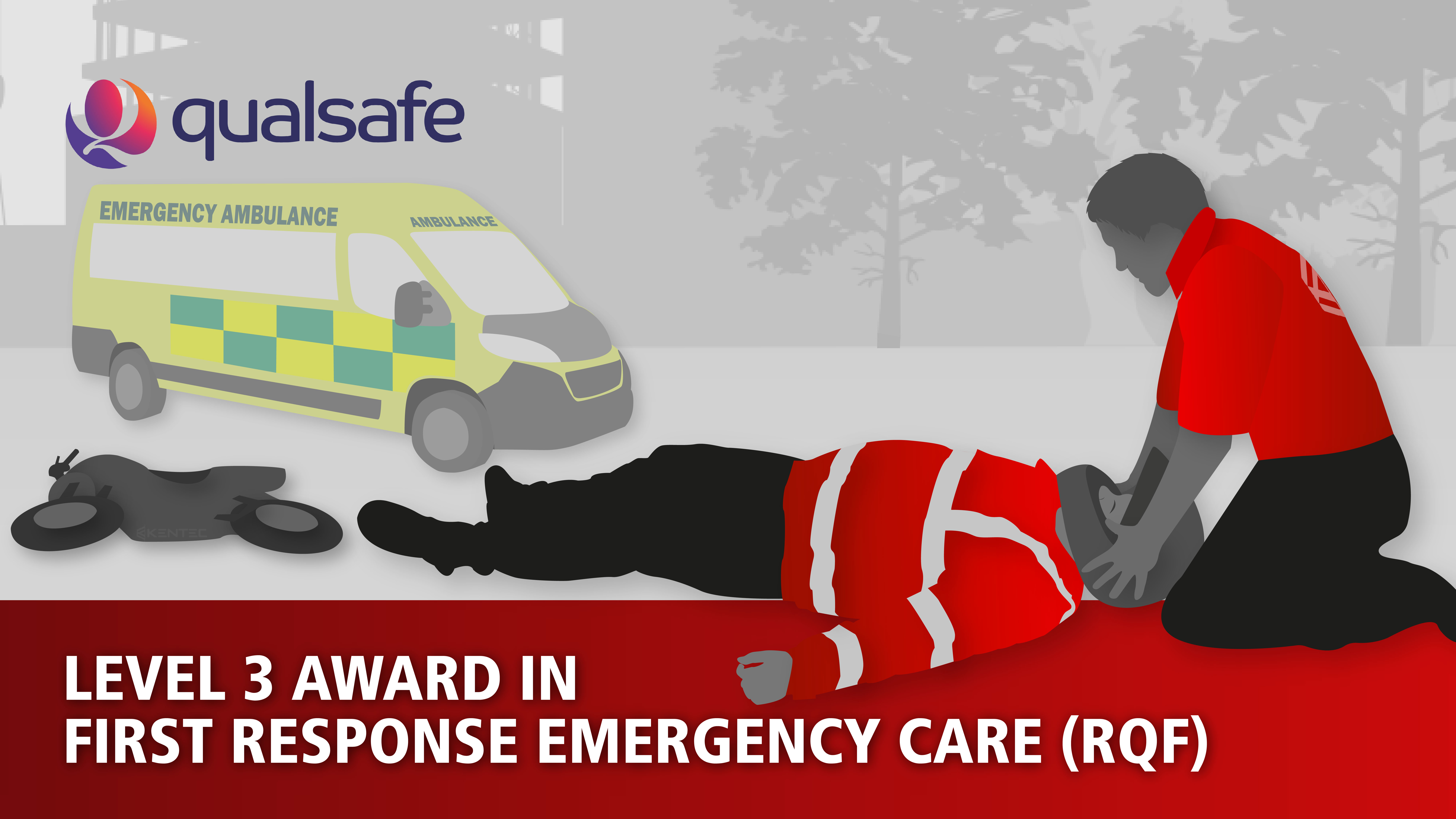
The 2025 Resuscitation Guidelines have arrived, courtesy of the Resuscitation Council UK - bringing key updates that directly impact our Emergency First Aid at Work (EFAW), First Aid at Work (FAW), and First Response Emergency Care (FREC) training courses.
Developed through international collaboration by ILCOR and aligned with NICE standards, these updates set out new evidence-based practices designed to improve survival rates and enhance training standards across all workplaces - including construction, utilities, logistics, and manufacturing.
🧠 1. Smarter, More Effective Training
First Aid & Emergency Responder training delivery across the UK is set to evolve - but at Kentec Training, we’re already way ahead of the curve.
The updated 2025 guidance emphasises modern methods such as:
- Real-time feedback devices to refine CPR quality.
- Gamified and simulation-based learning for engagement and retention.
- Rapid Cycle Deliberate Practice for focused, feedback-driven drills.
- Hybrid and flexible learning options using online or augmented tools.
- Structured trainer development to maintain the highest teaching standards.
The guidance also highlights that first aid training should be accessible to the widest possible audience by taking a bespoke, case-by-case approach to training first aiders. As such, first aid course content should be tailored based on the needs of participants, their environmental context (low-resource settings, rural areas, etc), the sociocultural appropriateness and feasibility. Courses should also include measures to help bystanders, lay rescuers and professional first aid providers to overcome fear, anxiety and moral distress during and after providing first aid.
Our expert instructors - many with real-world emergency response and military backgrounds - already bring the realism, structure, and confidence-building approach that the new guidelines promote, with an invaluable wealth of experience to back it up. For Kentec delegates sitting our first aid courses, little will change - because high-quality, individually-tailored, expert-led training has always been at the heart of what we do.
❤️ 2. Adult Basic Life Support (BLS) – Early Action Saves Lives
Every second counts. The 2025 update reinforces the fundamentals of immediate response.
Key changes include:
- 📞 Call 999 before assessing breathing for any unresponsive person.
- 💪 Chest compressions: 100 – 120 per minute, 5 – 6 cm depth, base of the palm central on the chest, minimal interruptions.
- 🚫 Compression-only CPR recommended for untrained rescuers.
- ⚡ Early defibrillation remains critical – AED use can double or quadruple survival.
- 📲 Emergency call handlers will provide guided CPR and AED support over the phone.
Regardless of the industry or environment, this underlines the importance of accessible AEDs and ensuring all staff are trained and confident to use them. This even includes Kentec, as each of our training centres has a regularly-tested and easily accessible AED in the event an incident occurs!
⚡ 3. Adult Advanced Life Support (ALS)
For trained responders and FREC-level personnel, the 2025 guidance refines the core priorities:
Highlights:
- High-quality compressions and rapid defibrillation remain central.
- Greater emphasis on effective ventilation and correct pad placement.
- Adrenaline use clarified – early in non-shockable rhythms, after the third shock in shockable ones.
- Structured post-event debriefing recommended to improve performance.
- Early recognition and prevention systems within workplaces can reduce arrests.
This aligns closely with the proactive safety culture promoted across UK industries - focusing on prevention, preparation, and precision under pressure.
💬 4. Post-Resuscitation Care
Once Return of Spontaneous Circulation (ROSC) is achieved, the focus shifts to stabilisation and recovery.
Guidance now recommends:
- Maintaining systolic BP above 100 mmHg and avoiding fever (>37.5°C).
- Controlled oxygenation and airway management.
- Early rehabilitation and structured follow-up within three months.
- Clear separation between prognostication and withdrawal decisions.
While this stage is beyond the first aider’s scope, awareness of these principles ensures smoother handovers to emergency services and the continuity of care.
⛑️ 5. First Aid – A New Dedicated Chapter
For the first time, first aid now has its own chapter - recognising it as the essential first link in the chain of survival.
The chapter includes guidance on the following:
- Utilising the ABCDE approach to promptly identify and treat life-threatening conditions (Airway, Breathing, Circulation, Disability, Exposure).
- Prioritise scene safety, reassurance, and early 999 calls. Always call for nearby help early and, ideally, as loudly as possible, especially if alone. As a general principle, you should only ever use equipment or medications you have been trained to use, such as AEDs and Epinephrine Injections (Adrenaline Shots).
- Use an escalating approach with adults who is actively choking: firstly encouraging them to cough, proceeding to deliver five back blows, then five abdominal thrusts, then - if choking has not been relieved, call 999 whilst repeatedly alternating the five back blows and abdominal thrusts until choking is relieved. If the person becomes unresponsive, begin CPR.
- Updated steps for Life-threatening bleeding, with an escalating approach with manual direct pressure and, thereafter, haemostatic dressing and/or tourniquets.
- Guidance on environmental emergencies such as heat stroke and hypothermia.
- Guidance on suicidal thoughts and ideation such as noticing warning signs, assessing risk of suicide, and signposting the person towards professional help (e.g. their GP, a therapist, or suicide hotlines such as the Samaritans or The Lighthouse Charity)
This reinforces that everyone, from site workers to MEWP operators, supervisors to directors, each and every one of us all have an important role and responsibility in saving lives.
🧩 What This Means for the Industry
The 2025 Guidelines signal a clear shift toward modern, evidence-based workplace first aid:
- Training must evolve with technology, but remain grounded in realism.
- Immediate AED access and CPR confidence and competence remain top priorities.
- First Responders must be prepared, both practically and mentally, to act under pressure.
At Kentec Training, we’re already integrating these updates into our EFAW, FAW, and FREC training programmes, ensuring our delegates stay aligned with the very latest standards in life-saving response.
For further reading, please visit the Resuscitation Council UK website here.
📞 Want to inquire about our First Aid at Work training courses? Get in touch today on 0333 666 0555 or email our support team at info@kentectraining.co.uk!
Get training you can trust with Kentec!




